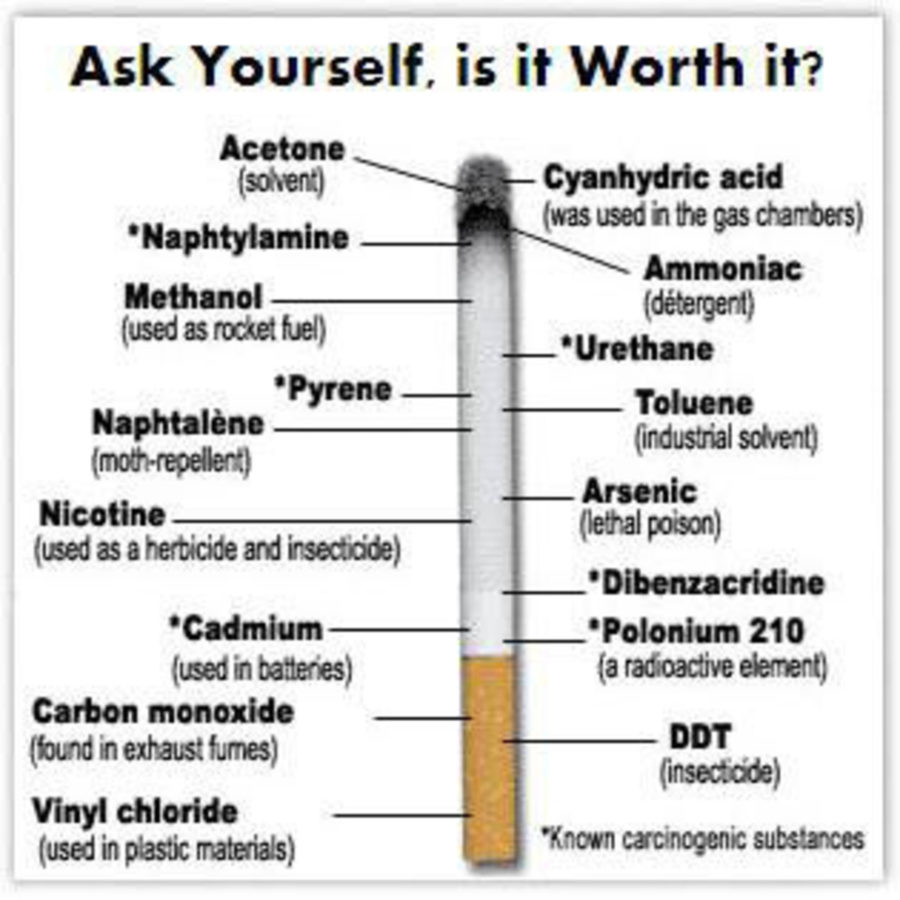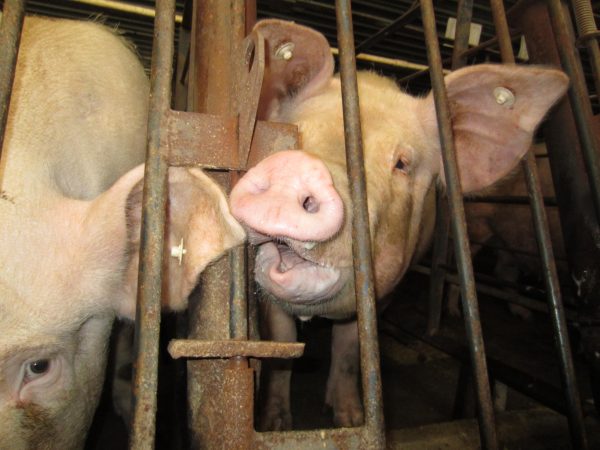Why are Cigarettes Still Legal?
The dangers of smoking have been made abundantly clear, but the addiction is too strong
I am a second-hand smoker.
For years, I’ve sat on the porch or in the passenger seat of a car and watched the way the soft, grey tobacco fluttered to the ground or zipped out the window with the deft flick of a finger. There was an art to the way a cigarette could be balanced between teeth and lips, an extension from the body, something that could only be perfected from daily practice. When they woke up…before they left for work…during their lunch break…after work…with a glass of wine or a bottle of beer…before dinner…after dinner…three cigarettes or even four or five while relaxing on the deck with others…one before bed and then sleep and repeat.
Some call it an addiction, while others prefer to call it a habit. Maybe it’s both.
I’ve always known that cigarettes are harmful. Too many times I’d open the door to my siblings smoking on the deck and was greeted with, “Go back inside, Jane. You don’t want to breathe this in,” or someone puffing casually on the side of the house saying, “Promise me you’ll never smoke.” I always did.
There is no argument left in the minds of the public as to whether cigarettes are harmful or not. ABC News reported in the article, “President Obama Signs Anti-Smoking Law,” that ”according to the Centers for Disease Control and Prevention, 440,000 people die prematurely from smoking each year, with an estimated 49,000 of those deaths due to secondhand smoke exposure.” In addition, the American Lung Association reports that “smoking is directly responsible for approximately 90 percent of lung cancer deaths and approximately 80-90% of COPD (emphysema and chronic bronchitis) deaths.”
It is no secret that cigarettes are largely unwanted by the general public and by policy makers as illustrated in an anti-smoking law passed in 2004. So why are they legal?
Too many times I’d open the door to my siblings smoking on the deck and was greeted with, “Go back inside, Jane. You don’t want to breathe this in.
It’s not that simple.
According to the CDC, “In 2012, an estimated 18.1% (42.1 million) U.S. adults were current cigarette smokers” with Kentucky having the highest rate of smokers, as noted by Justin McCarthy, writer for Gallup.com.
Cigarettes have been integrated into such a diverse range of society that they string all the way from the homeless sleeping on park benches to the men who write and pass America’s laws. If Congress were to make cigarettes illegal at this point, they would not be met with calm acceptance. So many Americans are chained to nicotine, the addictive drug found within tobacco, and struggle to even smoke one, singular cigarette a day. If smokers could no longer go to their local gas station to purchase a pack of Camel cigarettes or Marlboro Reds, then they would turn to other outside sellers.
History has a tendency to repeat itself.
Almost 100 years later the American population would find itself in its second prohibition, now targeting cigarette smokers. Black market dealers are no doubt already drooling to get their hands on such a large profit. And American consumers would probably be all too happy, especially those living in New York, to pay for a much cheaper, untaxed carton of tobacco.
The tax on cigarettes in New York is currently $4.35 a pack, according to tobaccofreekids.org. This tax provides tremendous amounts of revenue for the state and its programs. Likewise, because cigarettes are so heavily taxed by the federal government, if they were to be deemed illegal, large chunks of funding for government programs would be lost in a country already facing crippling amounts of debt. R. J. Reynolds Tobacco Company, the second largest tobacco company in the world, states that, “federal, state and local governments collect more money from the sale of cigarettes than retailers, wholesalers, farmers and manufacturers combined.”
Economically speaking, ridding the populous of cigarettes completely would be undeniably idiotic due to the massive amount of money that it produces and circulates.
No longer can tobacco companies even deny the harmfulness of their products. The government has forced them to label their merchandise with warning labels to try to reduce the amount of cigarette consumption, but they do not dare rid the country of cigarettes completely.
To eliminate cigarettes would be a very bold move that would be faced with an uproar of criticism from smokers who make up around one in five Americans. And the government is already too financially involved so much that they would be losing a large amount of income and instead handing it all over to shady dealers with an agenda that doesn’t reflect the good of the public at all.
Cigarettes may eventually peter out until hopefully 0% of the population uses them, but for now there is no better option but for them to remain on the shelves.





















Tijmen Pompl • Mar 26, 2016 at 3:21 PM
It is really really hard to prove that someone died of second hand smoking, most of the time they people die from other things and not the second hand smoking. Those numbers about second hand smokers who died are false